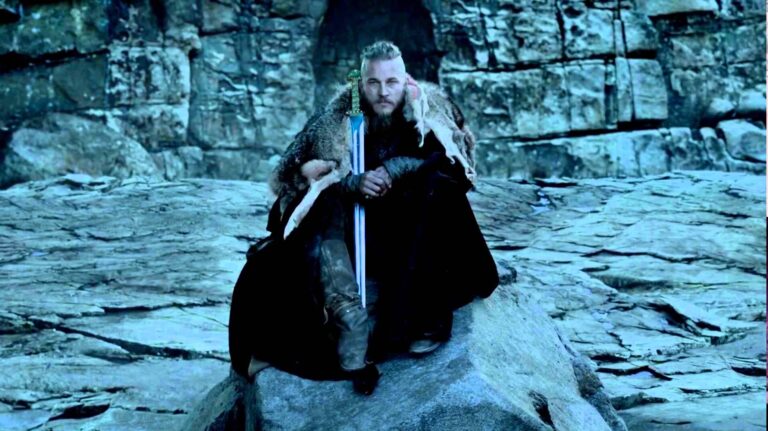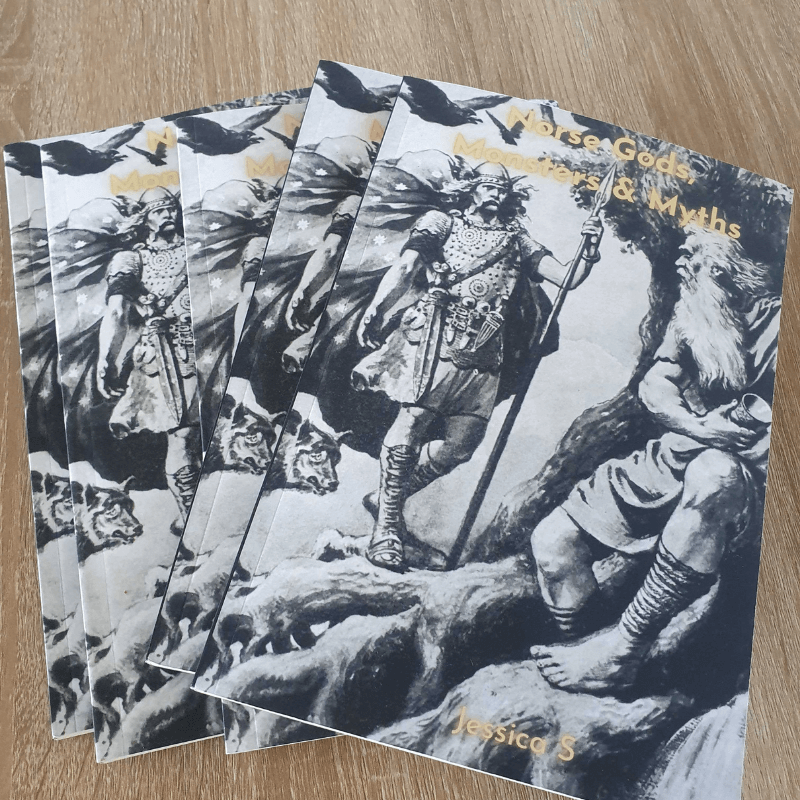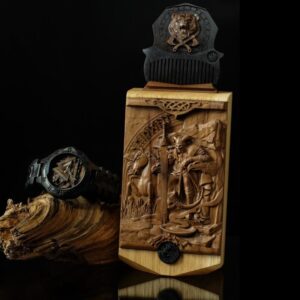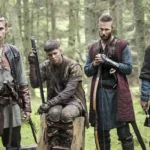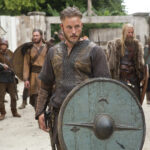This is the second article in our series covering the details of the History Channel’s popular TV show Vikings, which first came out in 2012 and ran for six seasons, and spawned the sequel Vikings Valhalla.
We are taking a detailed look at the plot as a refresher for fans and also diving into what the show gets right and what the historical inaccuracies are.
Overall, our verdict is that, while the show certainly takes liberties with timelines, it captures the spirit of the Viking Age and was a welcome addition to 21st-century pop culture around our Viking ancestors.
At the end of season one, Ragnar Lodbrok has become the leader of the Vikings at Kattegat and has begun raiding England thanks to information learned from Athelstan, an English monk turned Viking slave and trusted advisor.
He has also cheated on his wife, Lagertha, who can no longer bear children, and his pregnant mistress, Aslaug, has just shown up at Kattegat.
Family Frictions (Episode 1 “Brother’s War”)
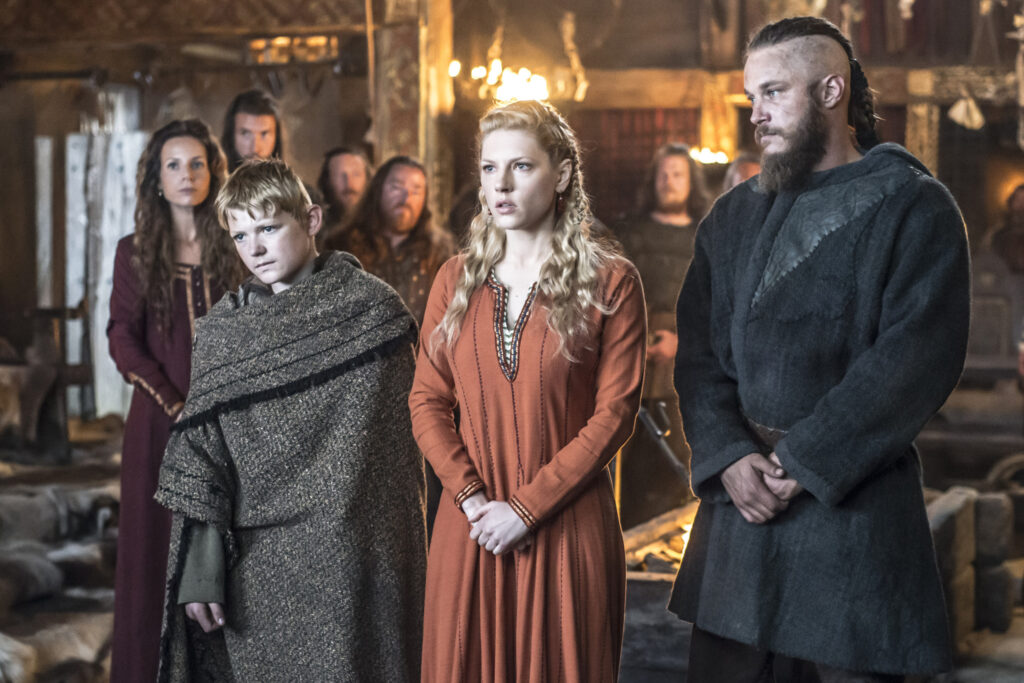
At the end of Season One, Ragnar allied himself with King Horik, which brought him into conflict with Jarl Borg.
Ragnar’s brother Rollo, hungry for power and jealous of Ragnar, sides with Borg against Ragnar.
Rollo is unable to kill his brother and, therefore, surrenders and is put on trial.
He is freed by the lawspeaker, who has been bribed by Ragnar to help his brother.
Meanwhile, an uneasy peace is struck between Horik and Borg.
This role of the lawspeaker does not align with historical practices.
Technically, the lawspeaker had no right to make decisions.
Instead, he was responsible for remembering and reciting the law and legal precedents so that a group of community leaders could make judgments.
This made the lawspeaker powerful and influential, but he never handed down judgments.
Meanwhile, wanting more sons, Ragnar decides to take Aslaug, who has turned up at Kattegat visibly pregnant, as his second wife.
This upsets Lagertha, who is humiliated and decides to leave.
Bjorn decides to go with her.
It was not common for Viking men to take a second wife.
While they would commonly take concubines, these were women of lesser status who would not challenge the position of the wife in the family and household.
However, under Viking law, at least in later times, Lagertha was within her rights to divorce her husband.
Landing in Wessex (Episode 2 “Invasion”)
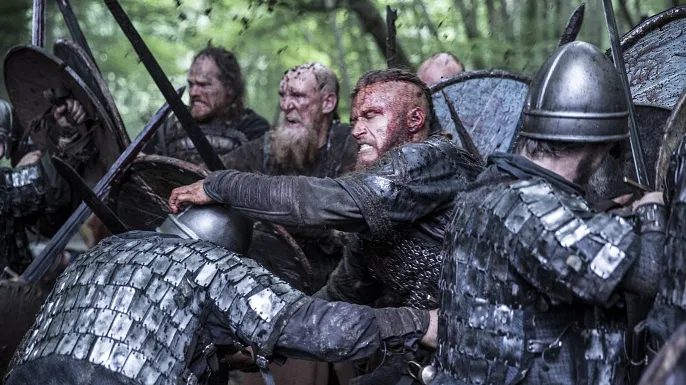
Four years pass before the start of the next episode, and Ragnar has two sons with Aslaug – Ubbe and Hvitserk and another on the way.
Aslaug is pregnant and has shared with Ragnar the prophecy that their next son will be born with a snake in his eye.
The Vikings believed in prophetic dreams, so such a pronouncement would have been taken seriously in the Viking world.
Ragnar also receives a prophecy from a seer that his sons will be more famous than him.
According to one of the sagas about Ragnar, he was jealous of the rising fame of his sons, and this made him act recklessly, so this is consistent with what we reportedly know about Ragnar.
Meanwhile, Ragnar finally decides to raid England again, this time gathering a large raiding party, including unwelcome additions from both Horik and Borg.
Violent storms throw them off course, and instead of landing in Northumbria, unbeknownst to them, they land further south in Wessex.
There, they are unexpectedly ambushed by soldiers; several men are killed, including Horik’s son, and Athelstan saves Ragnar’s life.
This is when they learn about King Ecbert of Wessex.
Ecbert was a real king of Wessex who ruled between 802 and 839 CE, so around the time that the Vikings started raiding England.
However, there is no surviving evidence that he had significant dealings with the Vikings.
Instead, he led Wessex to throw off Mercian control, taking control of Mercian dependencies and even ruling Mercia directly for a time.
Danegeld (Episode 3 “Treachery”)
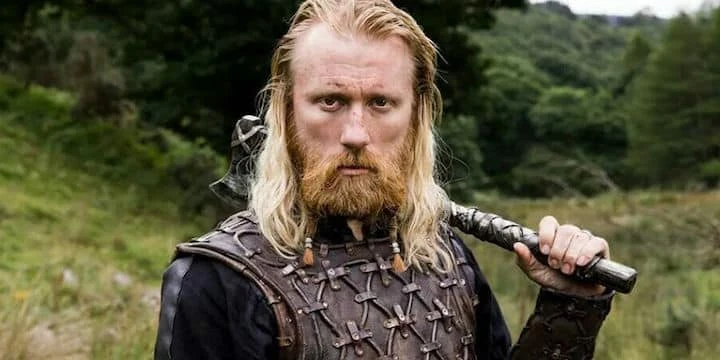
Ragnar and his men start to move deeper into Wessex.
While they raid for wealth as normal, Ragnar begins to believe that the true wealth of the land lies in its fertile soil, and he starts to consider a Viking colony.
Ecbert sends envoys to Ragnar, asking him to leave, and Ragnar asks him what he is willing to pay.
From a historical perspective, this is a little early.
While the Vikings did value the fertile English land, they would not start to settle in England for another 50 years, from around 860 CE onwards.
The idea of Danegeld – paying the Vikings to leave – also began in a later period.
It was first recorded during the reign of King Alfred the Great in the 870s.
Meanwhile, Lagertha has remarried to an abusive Earl Sigvard, which is making both her and Bjorn unhappy.
In Kattegat, Aslaug gives birth to Sigurd, who indeed has a snake in the eye.
The show suggests that this proves she is a Volva, a Viking witch, but in the Viking world, anyone could have a prophetic dream, and it was particularly common for brides on their wedding night and expecting mothers.
Jarl Borg also remarries and decides to seize the absent Ragnar’s land in retaliation for him breaking the terms of their truce.
Rollo is still in Kattegat since his betrayal meant that he did not sail to England.
He tries to lead a resistance with the women, children, and elderly, but he is eventually forced to flee with Aslaug, her children, and his own partner, Siggy.
While shieldmaidens were not as common in the Viking world as pop culture would have us believe, women did learn fighting skills to defend the farm and home while their menfolk were away, making this a plausible storyline.
Rallying Forces (Episode 4 “Eye for an Eye”)
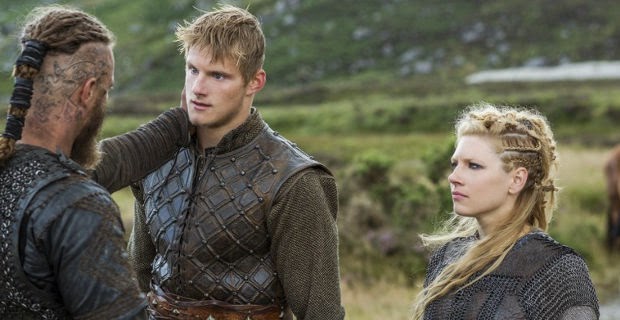
Ragnar meets with Ecbert, and after getting to know each other, Ecbert offers to grant him some land to stay in Wessex.
Again, this is bringing a much later historical event forward.
Danelaw, which legally granted the Vikings land in England, began in around 886 CE following a treaty signed between King Alfred the Great and a Viking called Guthrum.
Moreover, the Vikings were granted control of territory that the Great Heathern Army had already taken, mostly in Northumbria and East Anglia, while Wessex was largely preserved.
Not long after negotiations, Ragnar receives word of what has happened in Kattegat and returns home, leaving King Horik and Athelstan behind.
Athelstan is later captured and develops a friendship with Ecbert, who is fascinated by what Athelstan has learned from the Vikings.
However, when other members of the church realize that Athelstan is questioning Christian teachings based on what he knows of the heathen ways, he is called an apostate and crucified.
He is saved by Ecbert. However, while crucifixion is known from Roman Britain, the English burned unrepentant apostates in the Middle Ages.
Back in Denmark, Ragnar encounters his family.
Despite their wretched conditions, Ragnar wants to have sex with Aslaug. However, she tells him that she has had a dream that if they do not wait three days to have sex, their next son will be deformed.
In the end, Ragnar cannot wait.
While Viking men almost certainly had their way with local women while raiding, this was probably not an uncommon encounter for returning raiders and their wives.
Ragnar is also angry that he does not have enough men to take back Kattegat, so he is pleasantly surprised when Lagertha and Bjorn turn up with a group of fighters.
This is a reference to a story recorded in Saxo Grammaticus that after their divorce, Lagertha still loved Ragnar and helped him when he was facing civil war in Denmark by sending him 120 ships.
Retaking Kattegat (Episode 5 “Answers in Blood”)
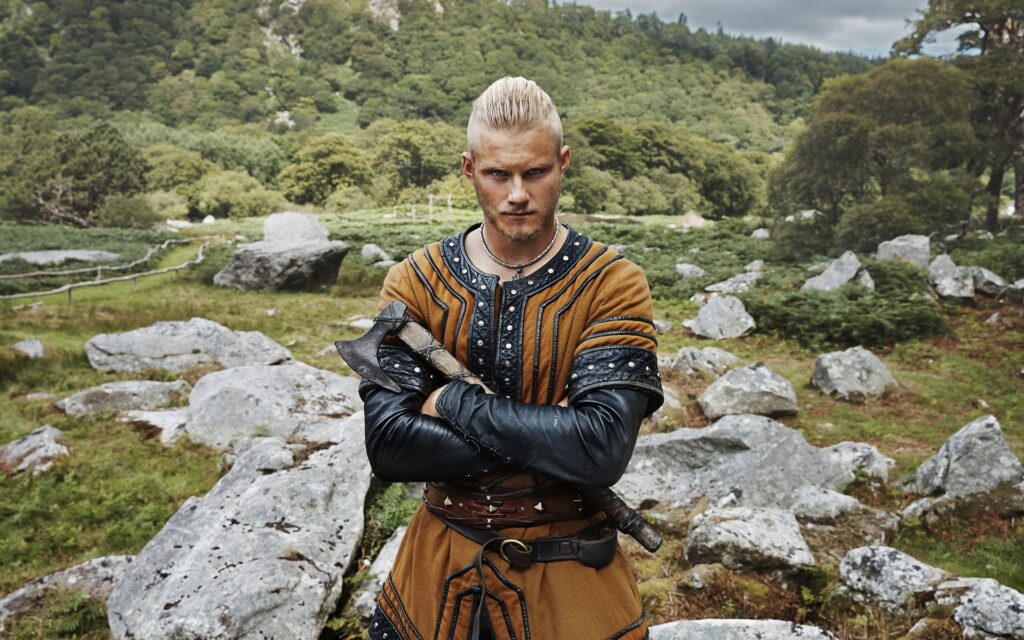
Now, with a considerable force, Ragnar and Bjorn are able to work together to take back Kattegat.
The pair sneak into the city and set fire to the winter stores, forcing Borg and his men to chase them down so that they can defeat them in a bloody field battle.
They retake the city, and Ragnar asks Bjorn to sacrifice a prisoner to the gods for their success.
Ragnar wants to be with both Lagertha and the now-pregnant Aslaug, but Lagertha chooses to return home to her husband while Bjorn stays behind with his father.
Things turn sour for the Vikings back in England as Ecbert convinces his son Aethulwulf to incite the nobles to attack the Viking community.
He can then remove the nobles from their positions of power because the Vikings were under royal protection, but the Vikings are also dealt with.
Horik and his son escape, bringing word of what happened.
So, the slaughter was orchestrated by Ecbert, but he has plausible deniability if the Vikings return.
New Alliances (Episode 6 “Unforgiven)
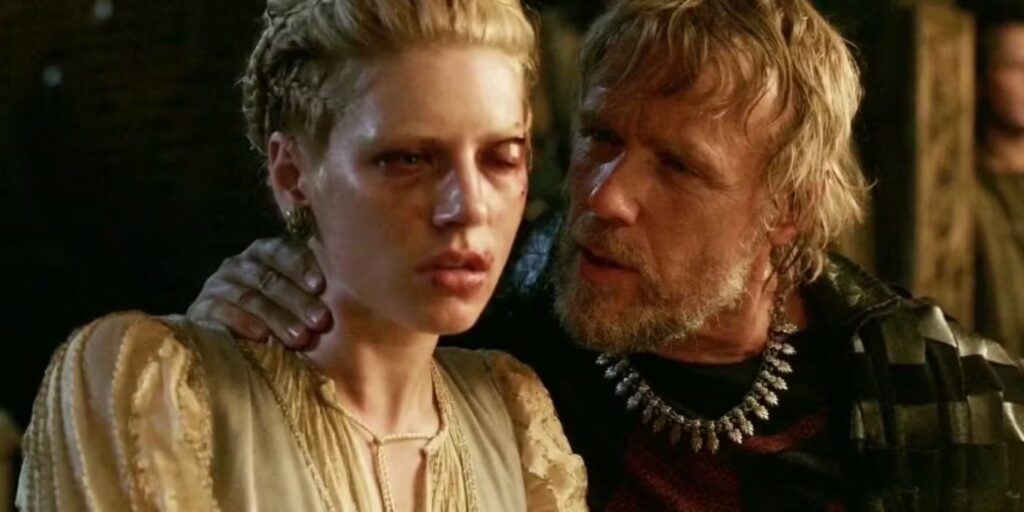
Back in Kattegat, with significantly reduced forces, Horik turns to Ragnar and suggests that they need to form a new treaty with Jarl Borg to get their revenge on Ecbert because he has many ships.
Aslaug has a bad feeling about this alliance and warns Ragnar, but he still sends Rollo to treat with the Jarl.
It was Aslaug’s role as Ragnar’s wife to welcome guests and facilitate alliances, so it would have been normal for chiefs to receive advice from their wives.
Jarl Borg agrees to help, a decision he comes to after consulting the skull of his first wife, though he is now married to Torvi.
He is welcomed to Kattegat, but Rollo then sets the barn that Borg and his men are sleeping in on fire and takes Borg prisoner, all without consulting Horik.
Back at home, Lagertha’s husband is displeased with her actions and has her beaten and tries to have her humiliated, therefore, she kills him by plunging a knife into his eye, and his nephew Einar then beheads him.
This is another reference to a story about Lagertha in Saxo Grammaticus.
He says that she quarelled with her husband in Norway and slew him with a spearhead she had concealed in her gown, and then usurped his name and sovereignty.
Meanwhile, Bjorn starts to have feelings for a thrall (slave) called Thorunn.
Slaves were extremely common in the Viking world and treated as property, so Bjorn would have been able to take her as a concubine if he wished.
Marriage would be out of the question.
Blood Eagle (Episode 7 “Blood Eagle”)
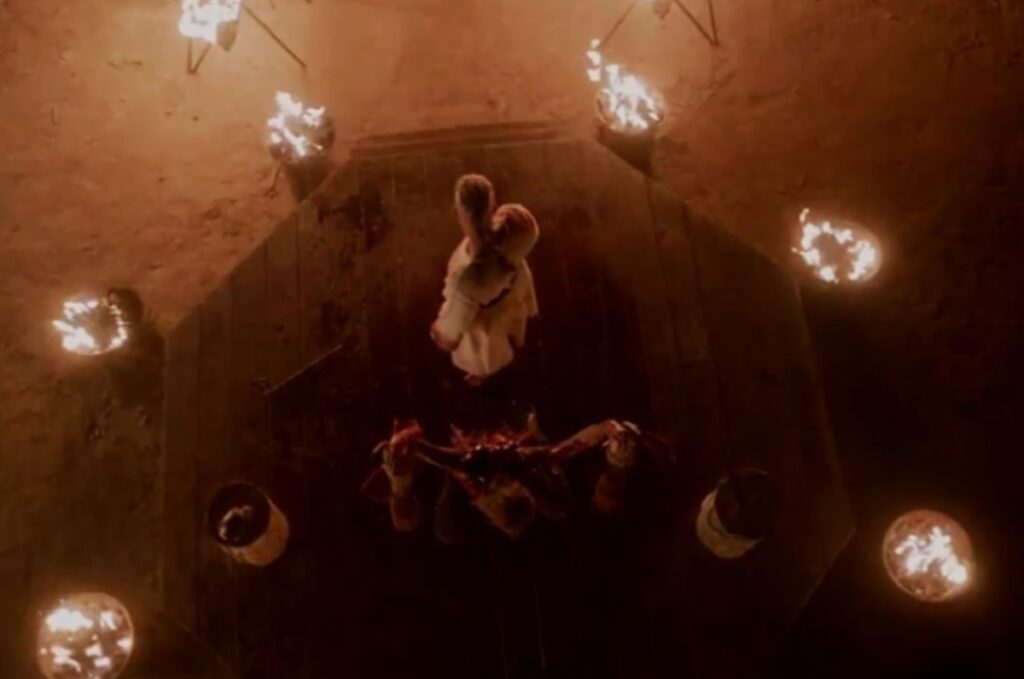
Horik still believes that they need Borg’s ships to return to England and tries to convince him to spare Borg for that purpose or at least delay the execution as it might scare off other allies.
Ragnar starts seeking new alliances, and his call is answered by a mysterious Earl, who is revealed to be Lagertha, now in control of her former husband’s land and wealth.
Horik, who is sleeping with Siggy, is meeting with Borg and trying to play both sides.
Borg is trying to convince Horik that the ambitious Ragnar is the real threat as he is ambitious enough to challenge his position.
Horik is initially tempted to work with Borg and starts rallying support to move against Ragnar.
Helga reveals to Floki that she is pregnant, and they prepare to marry, but instead of asking Ragnar to bless the wedding, they ask Horik, suggesting a rift between Floki and Ragnar due to Ragnar’s changing ideas due to Athelstan’s influence.
The wedding ceremony depicted seems very realistic, from Helga’s floral crown to the outdoor setting.
Back in England, Ecbert proposes an alliance with Aella of Northumbria to deal with the inevitable Viking threat.
This involves marrying Aella’s daughter to Ecbert’s son to seal the alliance, a common practice at the time. This is when we meet Judith.
This character is named for Judith of Flander, who was not from Northumbria but the daughter of the Carolingian emperor Charles the Bald.
She is amalgamated with another wife of Aethulwulf, Osburh of Coventry, who was the mother of Alfred the Great and Aethelswith, both of whom we meet as children of Judith later in the series.
When Lagertha shows up with the required ships, Horik abandons any pretence of working with Borh, and he is executed via Blood Eagle.
This was a Viking execution method recorded in the sources.
Ragnar cuts an eagle into Borg’s back, opening up the flesh to remove his lungs and place them beside Borg as he slowly suffocates.
Birth of Ivar the Boneless (Episode 8 “Boneless”)
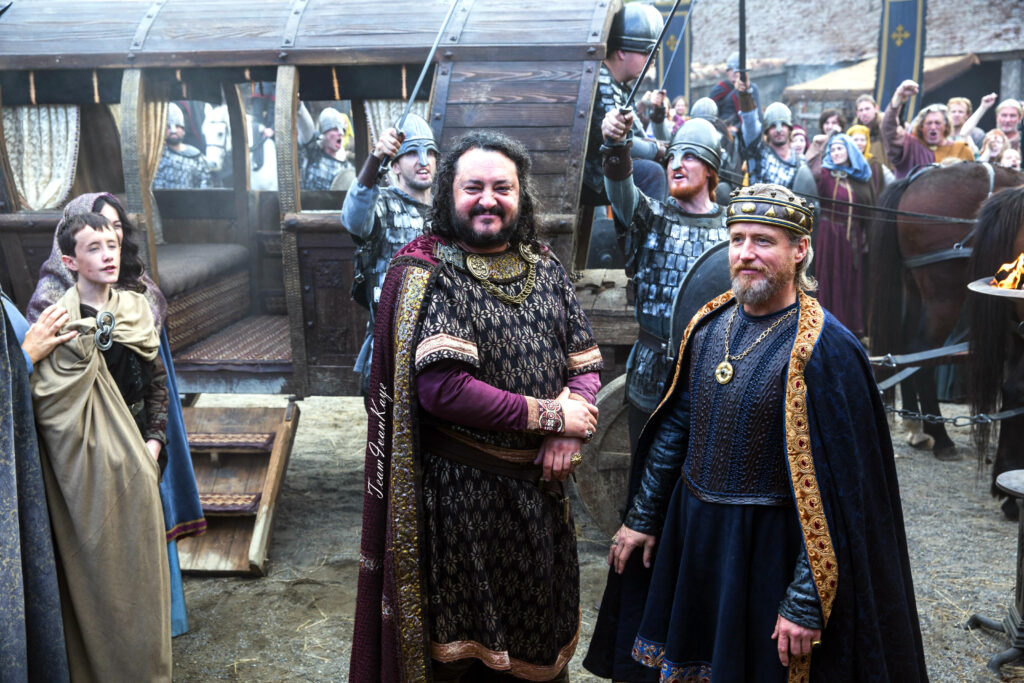
Aslaug gives birth to a son with malformed legs.
Ragnar insists that the baby should be exposed, but Aslaug keeps him, Ragnar eventually relents and calls the boy Ivar the Boneless.
The real Ivar was actually Ragnar and Aslaug’s first son, the older brother of Bjorn.
We do not know what he was called “Boneless,” but he probably was not born with the kind of birth defect mentioned on the show, or he would have been exposed.
Ragnar, Horik, and Lagertha set off for England, and when they land in Wessex, Ragnar sends word to Ecbert of his arrival, over the objections of the others.
This gives Horik further ammunition to try and win Floki over to his side.
Ecbert’s son Aethulwulf arrives with a group of soldiers to take Ragnar to Ecbert, and brings Athelstan’s arm ring as a sign of goodwill and evidence that he is still alive.
Despite Ragnar promising them safe passage in and out of the Viking camp, Auethulwulf and his men are ambushed by Horik’s son Erlunder, who slaughters the entire group, except for Aethulwulf, who is allowed to flee and report back to his father.
A constant cycle of treaty and betrayal characterizes relationships between the Norsemen and Anglo-Saxons in England.
Viking Mercenaries (Episode 9 “The Choice”)
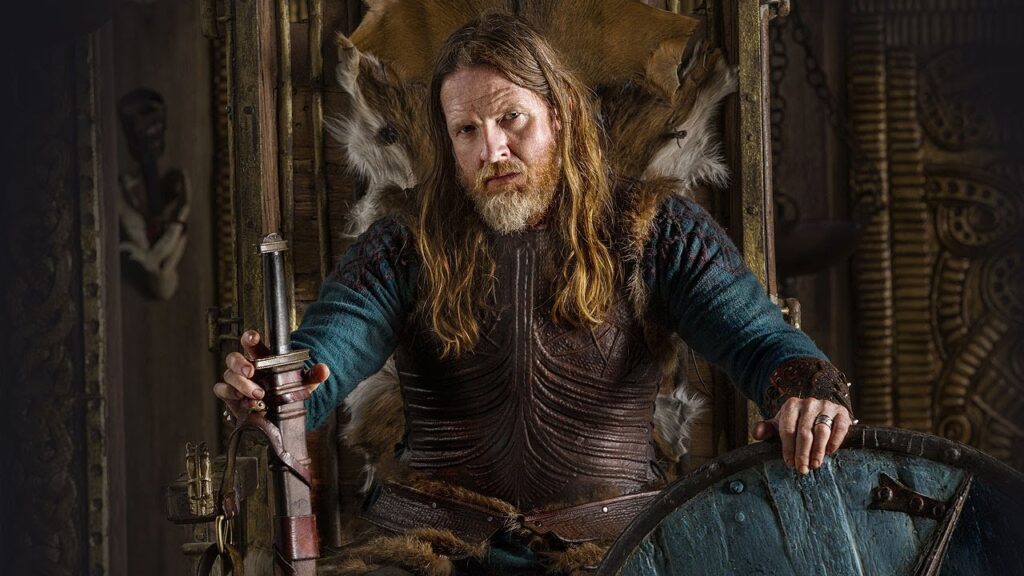
With the Vikings now in conflict, Ecbert and Aella hatch a plan to trick Horik into attacking what he thinks is the Essex Army, which traps them between two troops of cavalry, allowing the English to extract a dramatic victory.
Rollo is badly wounded, but he is recognized by Athelstan, who convinces Ecbert to take him back to Winchester as a bargaining tool for dealing with Ragnar.
Meanwhile, Ragnar names Bjorn “Ironside” because he makes it through the battle unscathed.
We don’t know why Bjorn was called Ironside, but it was presumably a reference to his fighting skills.
While Aella wants to continue and deal with the Vikings ruthlessly, Ecbert decides to offer them land again, and then employ them as mercenaries against Mercia.
Kwenthrith, a princess of Mercia, had previously come to Ecbert for help to reclaim her kingdom from her younger brother, and Ecbert saw this as a chance to take Mercia for himself.
The deal is struck when Rollo is returned.
While some Vikings, including Lagertha, choose to stay and fight, others, including Ragnar and Horik, return to Kattegat, along with Athelstan, who admits that he now believes in both the Christian and Norse gods.
Aslaug frees Thorunn, removing that taboo prevents her from marrying Bjorn.
King Ragnar Lodbrok (Episode 10 “The Lord’s Prayer”)
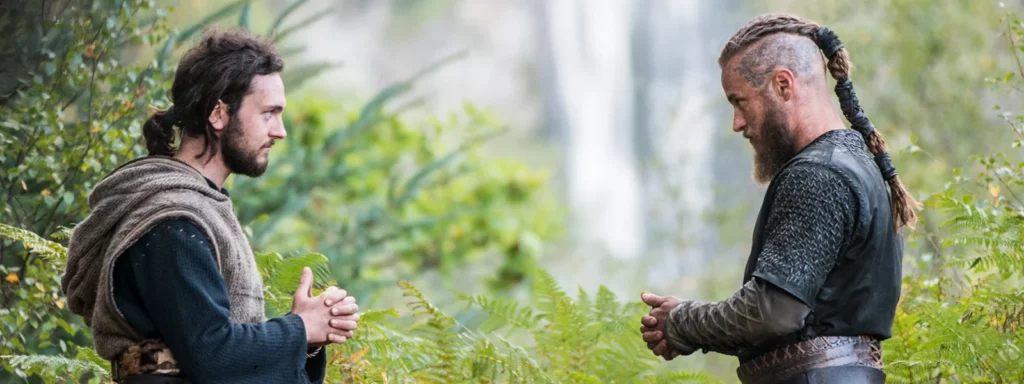
Back in Kattegat, Horik has plans to kill Ragnar and his entire family, whom he sees as a threat to his power.
To prove to Horik that he is trustworthy, Floi kills Torstein, another of Ragnar’s allies.
Horik then brings both Floki and Siggy, whom he has been sleeping with, in on his plans.
Thinking all is prepared, Horik attacks Kattegat, but when he arrives at the main hall, he sees that Torstein is still alive and that neither Floki nor Siggy was really on his side.
Ragnar kills Horik and takes his sword, claiming the title of king for himself.
However, he spares Horik’s son Erlendur as Horik’s last wish.
During this episode, Athelstan also teaches a curious Ragnar the Lord’s Prayer, setting up one of the major themes of season three.
